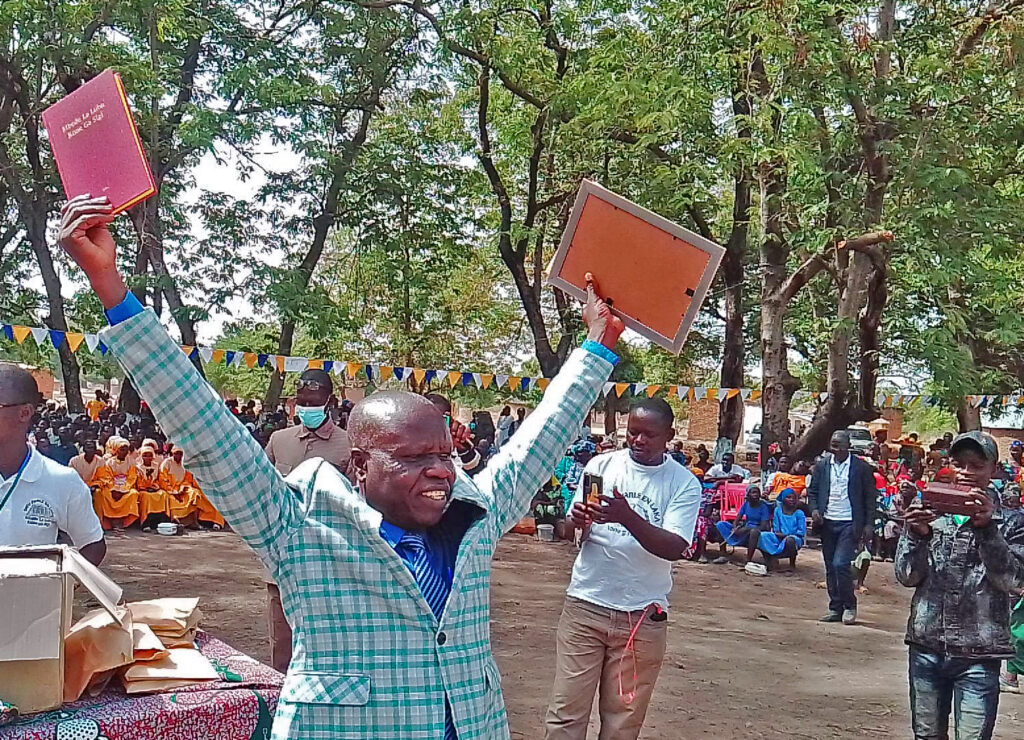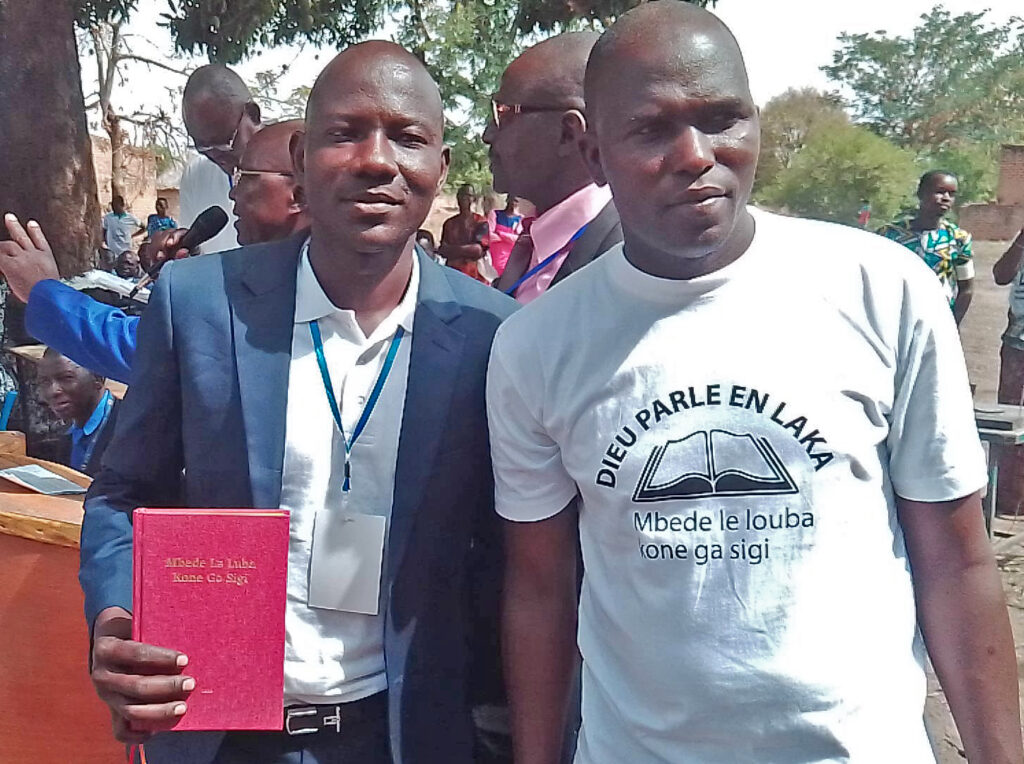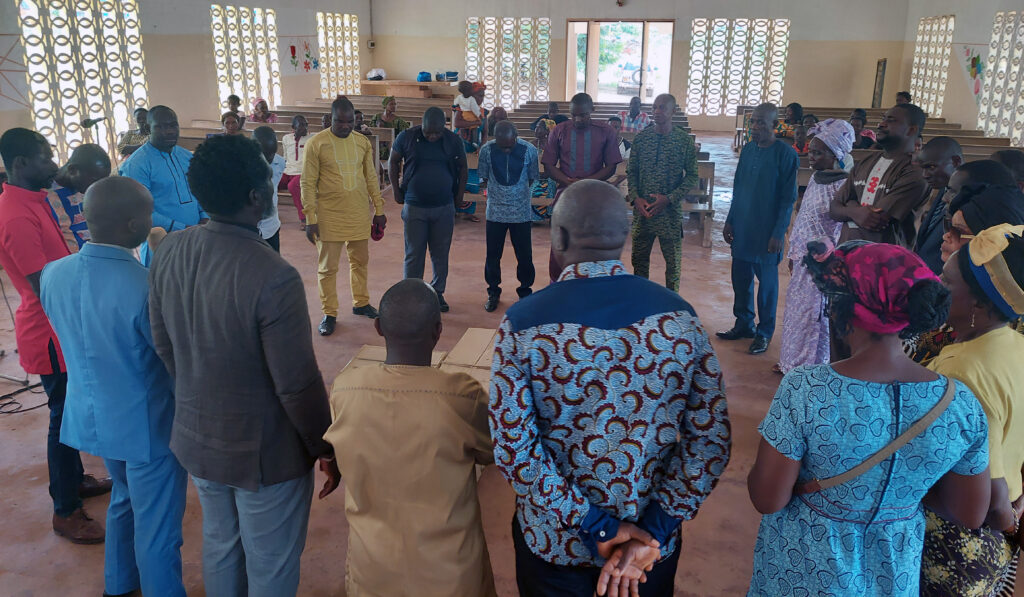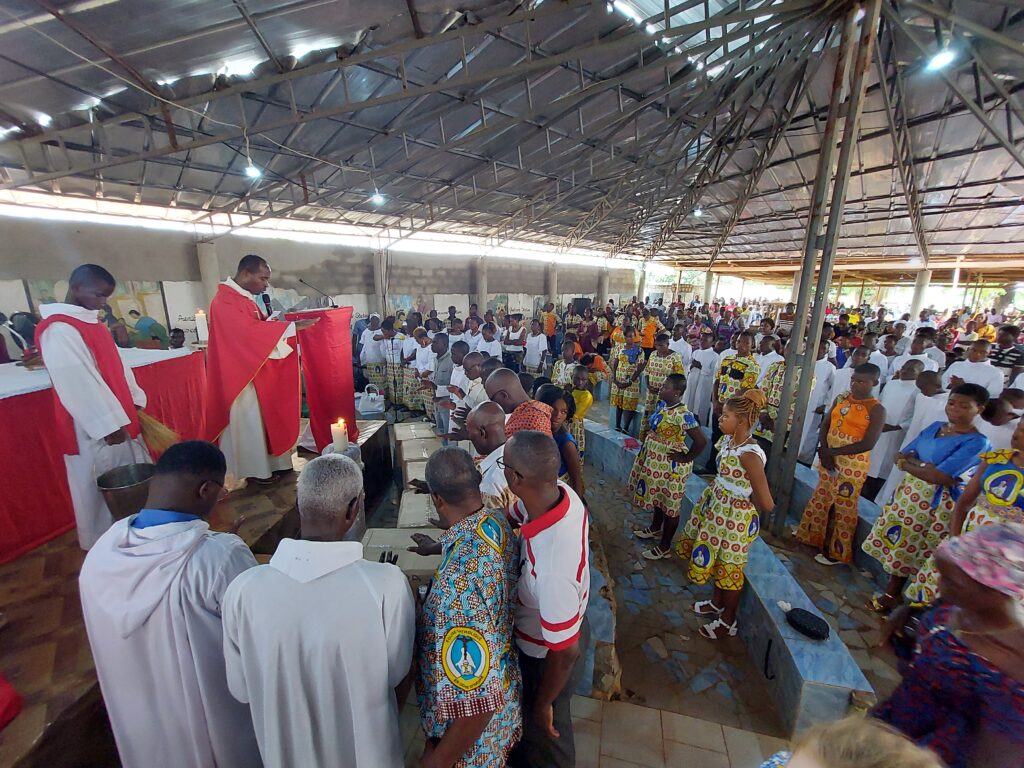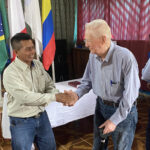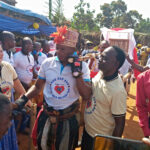For many missionaries in remote places, a journey to work can be a matter of life and death. That’s why sustaining them with Land and Sea Operations equipment and training is crucial.
This is No Normal Adrenaline Rush

When a person goes off-roading as a hobby in the United States and encounters trouble, they can just call 911 or a friend.
But in remote places in Africa, there is no 911.
There is no AAA, medevac helicopter, or ambulance. At least not nearby.
The people who are driving into these difficult places aren’t doing it for an adrenaline rush, but to share the gospel. And if they don’t know how to drive well, it can put their lives at risk.
Some of our co-laborers in Christ must drive 100 miles into remote areas to do the work God has called them to. Gift, the language programs coordinator at SIL* Uganda, must travel six to 12 hours.
Most of the roads that Gift and his team drive on are dirt. Sometimes a bridge breaks, and they must drive through the water. “And if you do not know how to use a four-wheel-drive,” Gift explained, “you can’t manage to get through it.”
Other times, the roads are steep and winding, or the driver must navigate around a log or rock in the road. “In [this kind of] off-road driving, a four-wheel-drive is the best vehicle to use,” Gift said.
With your generosity, we were able to purchase a four-wheel-drive vehicle for Gift’s team and send Land Ops trainers to Uganda to equip and sustain our co-laborers with training. The Land Ops team taught them 4WD and recovery skills, such as how to use a winch, how to drive uphill and downhill without using the brakes, and how to maintain the vehicle.
“Now it’s going to be much easier for me and my team to carry a load of Bibles to the language communities,” Gift said. “I’ve learnt a lot through [this training], and I am confident now that my driving skills are much better because of the things that we learned.”
Gift helped the other drivers in his class see that they are stewarding the lives of the people they’re driving. Safety is vital, and maintaining the vehicle enables them to use it to serve God for a long time.
The JAARS team left our co-laborers in Uganda feeling confident that they had received the training well and would be effective at sharing that training with others.
Why Water Safety Training?
Another group of unreached people who have little or no access to Scripture in their language live on the shore of Lake Malawi.
Most of the villages beside Lake Malawi are inaccessible by land due to a steep and rocky shoreline. The only way to reach the people is by boat.
Most of the boats are 30 feet long and have a 25 horsepower outboard motor, so they can reach only 5 knots (6 mph). There’s also a limited number of boats, so our co-laborers trying to share the gospel with the 20,000 Kisi people living beside the lake must work around commercial-boat schedules and trust the skill and wisdom of whichever boat operator they’ve hired.
Your support has enabled JAARS to cover the “last mile” to the Kisi people by funding a boat-building project.

The same team that provided 4WD training in Uganda provided water-safety training to the Kisi language team. We also supplied them with essential gear such as life jackets and water survival kits and taught them how to use them.
Since the Kisi Christians began work on giving their people access to God’s Word in their language in 2020, they’ve been able to reach only about a third of the total language group area. We hope the boat and training will get them to all the villages around the lake.
Why Sustaining Missionaries is So Important
The JAARS Sea Ops team experienced a taste of what our co-laborers go through daily.
The three men planned to drive for six hours to a town at the north end of the lake and then ride on a boat for six hours to the village where they were to provide training.
But the lake was so rough that the boat captain refused to take them. Instead, they would have to go around by road. Instead of 12 hours by road and boat, it became an 11-hour road journey and then a two hour-boat trip.
On the drive in a Toyota Coaster bus they had hired, it wasn’t long before the pavement came to an end. “It was some of the worst ground that I’ve ever seen called a road,” said Dan Hudson, one of the instructors, who has lived in several countries.

A few times, the team had to get out and push the bus when it got stuck. And then a rock in the road busted the radiator.
A piece of earthmoving equipment towed the bus out of the road, and they parked and tried to sleep until help came. Meanwhile, their translator, Exaudi, traveled by motorcycle to the next town about 20 minutes down the road. He hired a driver to pick up the team and take them to the town to spend the night.
The next day, the team finally finished their road trip and switched to the boat.
These transportation challenges showed the team how vital good vehicles and training are to reach people in remote places. And it showed them what our co-laborers must undergo every day when doing the work that God has called them to.
As our brothers and sisters in Christ sacrifice their time, comfort, and safety to share the gospel, you have the privilege to come alongside them—with us—to sustain their lives and the working life of their equipment so the gospel can reach these hard places.
To meet these challenges, our plan is to establish new hubs for field operations and training in various remote locations within the green band of jungle climates in Africa, South America, and the Pacific.
What’s Your Part?
You can play a vital part in sustaining missionaries as JAARS opens these new hubs to cover the last mile to the unreached. There will be a need for 4WD vehicles, motorcycles, and/or boats and training in these places as we sustain Christians as they go out to share the gospel.
Give to Global Field Operations to provide our future hubs with the people, logistics, and equipment needed to cover the last mile to the unreached.
*SIL is a partner of JAARS



























































